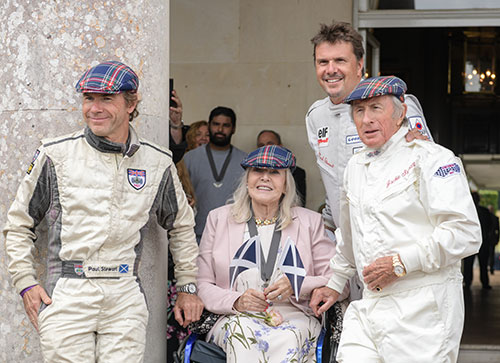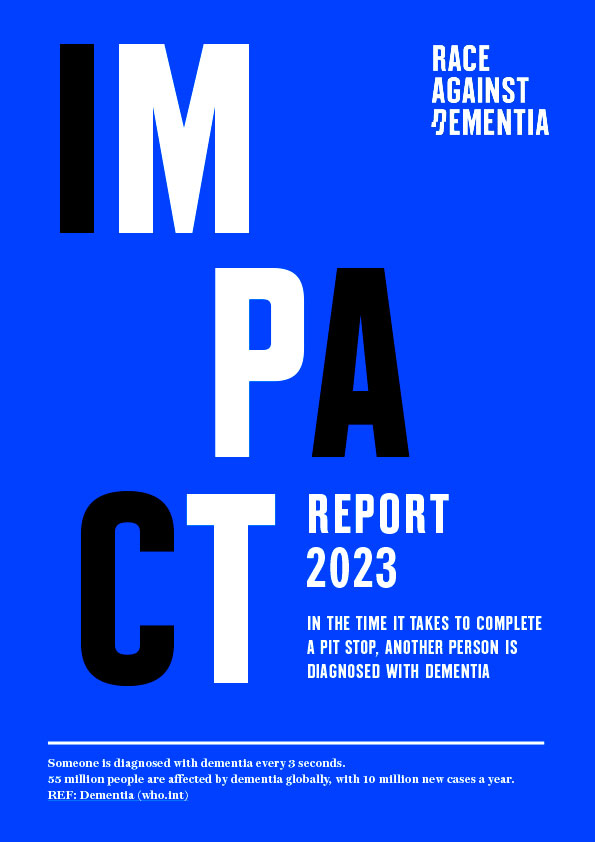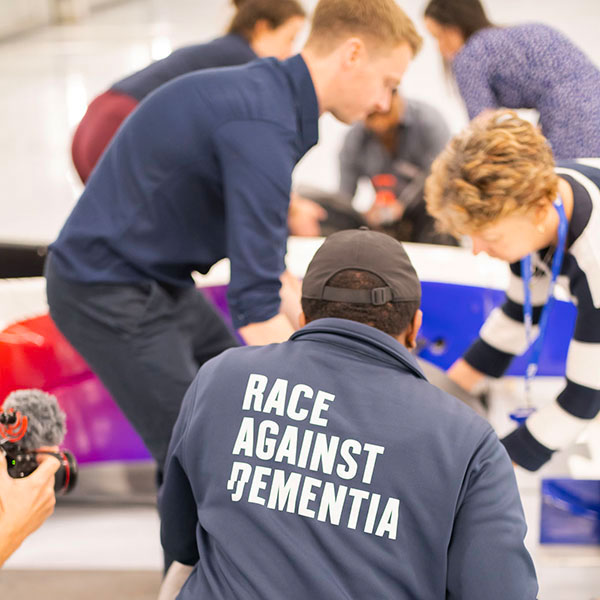Overview of Race Against Dementia Day
History and Background of Race Against Dementia Day
Race Against Dementia Day (RAD Day) emerged as a global effort to raise awareness for dementia, a condition that affects millions worldwide. This initiative was birthed from the vision of Sir Jackie Stewart, a three-time Formula 1 World Champion, after he faced the heartbreaking reality of dementia affecting his family. Inspired to make a change, Stewart established the Race Against Dementia Foundation in 2016. The aim was clear: to accelerate research efforts to find better treatments and ultimately a cure for dementia.
This annual event not only commemorates those impacted by dementia but also fosters a sense of community through shared experiences and collective action. As it gained momentum, RAD Day has seen an increase in participation, showcasing how individuals, communities, and organizations can unite for a common cause.
Each year, events such as charity races, sponsored walks, and awareness campaigns are organized across various platforms to galvanize support and raise funds for dementia research. Through personal stories, challenges, and triumphs, participants find motivation in knowing they contribute to a cause that extends beyond themselves.
Mission and Goals of Race Against Dementia Foundation
The Race Against Dementia Foundation’s mission is simple yet profound: to accelerate the pace of dementia research and increase awareness about the condition itself. The organization adheres to a strategic focus that includes the following goals:
- Funding Research: Ensure financial support for innovative research that seeks to understand dementia’s complexities.
- Promoting Collaboration: Cultivate partnerships between research institutions and pharmaceutical companies to inspire breakthrough treatments.
- Raising Awareness: Launch campaigns that educate the public on dementia, reducing stigma, and increasing understanding of the disease.
- Supporting Caregivers: Acknowledge the challenges faced by caregivers, providing them with resources and support systems.
Through these goals, RAD not only contributes to groundbreaking research but also creates a supportive network for those affected by dementia. Whether it’s the heartfelt stories from caregivers or the dedication of researchers, the core motivation remains: to combat dementia one step at a time, together. The shared hope and resilience of all those involved are what make Race Against Dementia Day a truly meaningful occasion.

Impact of Dementia on Society
Statistics and Facts about Dementia
Dementia is not just a personal issue; it presents significant challenges for society as a whole. Recent statistics highlight the staggering scope of this condition:
- Global Reach: Approximately 55 million people worldwide currently live with dementia, a number expected to rise to 78 million by 2030, according to the World Health Organization.
- Age Factor: While dementia can affect anyone, the risk increases significantly with age. About 6% of people aged 60 and older have dementia.
- Caregiver Pressure: It is estimated that 61% of dementia caregivers report high levels of stress, which can lead to their own health issues.
These figures underscore the urgency of addressing the growing dementia crisis. Personal stories bring these statistics to life. For instance, a caregiver shared how her mother’s diagnosis changed their family dynamics, making her the primary caregiver, which not only required her physical presence but also emotional resilience.
Social, Economic, and Health Implications of Dementia
The implications of dementia extend beyond the individuals diagnosed; they ripple across families, healthcare systems, and economies:
- Social Isolation: Individuals with dementia often face loneliness and isolation, as cognitive decline can alter social interactions and friendships.
- Economic Burden: The financial impact is staggering. In the U.S. alone, dementia costs more than $305 billion annually, factoring in both healthcare costs and lost earnings.
- Healthcare Strain: Dementia poses significant demands on healthcare services, accounting for a substantial portion of emergency visits and hospitalizations. In fact, those with dementia are three times more likely to be hospitalized than those without.
The stories shared by families illustrate profound challenges: an individual recounted how her father’s dementia led to family tensions as different members struggled to accommodate his changing needs.
In conclusion, understanding the impact of dementia on society is essential in fostering greater awareness and driving collective efforts toward support and research. As personal narratives and sobering statistics intertwine, the message is clear: it’s crucial to prioritize not just understanding dementia, but finding ways to face this growing challenge together.

The Global Campaign for Dementia Awareness
Initiatives and Events on Race Against Dementia Day
On Race Against Dementia Day, the global community comes together to celebrate hope and actively engage in raising awareness about dementia. Various initiatives and events take place, fostering participation across age groups and demographics. This day is not merely about information dissemination; it’s an inspiring call to action.
A few notable initiatives include:
- Charity Runs and Walks: These events attract participants from all walks of life, uniting them under a shared purpose. Families, friends, and even pets join in to showcase their commitment to fighting dementia.
- Educational Workshops: Hosted by experts, these workshops aim to equip participants with knowledge about dementia care, understanding its symptoms, and effective communication strategies for interactions with those affected.
- Community Awareness Drives: Local organizations often set up booths in community centers, parks, and schools to share brochures, pamphlets, and firsthand testimonials. This grassroots level of awareness amplifies the message in diverse communities.
A participant from last year’s events shared how participating in a community walk not only educated him about dementia, but also connected him with local support groups that proved invaluable in caring for his father.
Collaborations with Organizations and Supporters
The success of Race Against Dementia Day is largely attributed to the collaborations forged with a multitude of organizations and champions. These partnerships manifest in impactful ways:
- Healthcare Organizations: Many hospitals and health practitioners lend their expertise to provide free screenings, health advice, and resources for families navigating their loved one’s dementia journey.
- Corporate Sponsorships: Local and global companies often sponsor these initiatives, providing funding that helps cover event costs and enriches community outreach efforts.
- Social Media Campaigns: The digital landscape plays a crucial role in spreading awareness. Influencers and advocates share powerful messages and personal stories through various platforms, engaging audiences far beyond physical events.
The collective voices and efforts illustrate the unity felt not just on Race Against Dementia Day, but throughout the year. As communities join forces, they create a network of support that can empower those affected by dementia. Each story, each initiative, strengthens the dramatic narrative of hope and resilience in the face of adversity. Ultimately, these collaborations are not just pivotal for raising awareness—they are foundational to seeing real change in dementia understanding and treatment.

Research and Innovation in Dementia Treatment
Breakthroughs in Dementia Research
As awareness of dementia grows, so does the momentum for groundbreaking research aimed at understanding and treating the condition. Recent breakthroughs are not only promising but also offer a glimpse of hope for families affected by dementia.
One of the most significant advancements in dementia research is the exploration of early detection methods. For example:
- Biomarkers: Researchers are currently investigating biomarkers that could identify dementia before symptoms appear. These advances could revolutionize treatment strategies, enabling preventive measures and timely interventions.
- Neuroinflammation Studies: Emerging studies suggest that targeting neuroinflammation may play a crucial role in halting cognitive decline. By understanding the inflammatory processes involved in dementia, scientists are working toward developing new therapies that target this aspect.
A caregiver shared an experience regarding a clinical trial her mother was part of, which allowed them to access cutting-edge diagnostics that detected changes in her mother’s cognitive functions much earlier than usual.
Cutting-edge Technologies and Therapies for Dementia Patients
The intersection of technology and healthcare is carving new paths in dementia treatment. With innovative technologies, there’s a brighter outlook for enhancing patient care and quality of life. Some notable advancements include:
- Digital Health Platforms: Telemedicine technologies allow caregivers and health professionals to monitor patients’ conditions remotely. This ensures that support is available even when in-person visits are challenging.
- Wearable Devices: Smartwatches and fitness trackers can help monitor daily activity levels, sleep patterns, and even detect behavior changes that could signal a decline in cognitive function. This real-time data provides valuable insights for caregivers and healthcare providers.
- Cognitive Therapies through VR: Virtual reality (VR) is being used for cognitive therapy exercises, providing patients with immersive environments that stimulate memory and cognitive skills.
One family member recounted how using a VR platform helped their loved one engage in memory exercises, making the experience both enjoyable and effective.
As the research field continues to expand, the hope is that these advancements pave the way for new treatment regimens. With each breakthrough, families feel a renewed sense of optimism that fosters resilience in the care of those affected by dementia. The ongoing innovation in research and technology not only transforms individual lives but also fuels a communal endeavor toward a brighter future in dementia care.

Personal Stories and Testimonials
Experiences of Caregivers and Individuals Affected by Dementia
Dementia not only impacts the individuals diagnosed but profoundly affects their caregivers and families. The stories shared by caregivers serve as poignant reminders of the challenges and triumphs erupting from this journey.
One caregiver, Lisa, shared her story about her mother’s Alzheimer’s diagnosis. Initially overwhelmed, Lisa felt an array of emotions—from grief to determination.
- Daily Challenges: Lisa described her struggle with her mother forgetting familiar faces. “There were days when I’d show her old pictures, and she wouldn’t recognize me. It broke my heart,” she reflected.
- Support Systems: However, Lisa found strength in connecting with local support groups. “Talking to others going through similar struggles not only provided me with invaluable resources but also a sense of community and understanding.”
These personal anecdotes highlight the daily realities faced by caregivers, offering a lens into the emotional toll but also the resilience that blossoms amidst adversity.
Inspirational Stories of Hope and Resilience
Amid the difficulties surrounding dementia, countless stories of hope and resilience emerge, showcasing human ingenuity and community spirit. One particularly inspiring story is that of James, a retired teacher diagnosed with early-onset dementia at the age of 52.
Instead of succumbing to despair, James chose to make a difference:
- Advocacy Efforts: He began speaking at local schools and community events, sharing his experiences to raise awareness about dementia. “I want people to understand there’s life even in this condition. We can still find joy,” he stated.
- Artistic Expression: Harnessing his creative talents, James took up painting as a therapeutic outlet. His artwork not only reflects his journey but also has been showcased in local galleries, igniting conversations about dementia and breaking down stereotypes.
These stories of caregivers like Lisa and individuals like James exemplify the courage and strength found in the face of adversity. They remind us that while dementia presents challenges, it also fosters a unique resilience in the human spirit.
As the narratives unfold, they weave a rich tapestry of hope, underscoring a collective experience that transcends individual suffering. Each shared story serves as a beacon, illuminating the path for others navigating their own journeys with dementia, inspiring compassion and understanding in the broader community.

How to Get Involved and Support the Cause
Fundraising Opportunities and Donations
Engaging in the fight against dementia can take many forms, with fundraising playing a crucial role in supporting research, awareness, and care initiatives. Fundraising opportunities come in various sizes and flavors, making it accessible for everyone to contribute.
- Host a Community Event: Many individuals have organized successful events like bake sales, garage sales, or charity runs. One participant shared that their local bake sale not only raised funds but also opened up discussions about dementia resources available in the community.
- Participate in Sponsored Activities: Consider joining or sponsoring a fitness challenge, such as a walk, run, or cycle event. Many local and national organizations host such events on Race Against Dementia Day, creating an exhilarating atmosphere that combines fitness and fundraising.
- Online Donations: For those with busy schedules, simple online donations to trusted dementia organizations can also make a significant impact. Many organizations provide options to set up recurring donations, turning your support into a sustained commitment.
Real-life stories connected to fundraising highlight how small efforts can culminate in substantial contributions to dementia research. A school in Houston hosted a “Dementia Awareness Week,” encouraging students to learn and contribute, ultimately raising over $3,000 for research.
Volunteering and Advocacy for Dementia Awareness
Volunteering is another effective way to contribute to this important cause, offering chances to make a hands-on impact while enriching your own understanding of dementia.
- Join Local Support Groups: Many organizations look for volunteers to facilitate support groups for caregivers and individuals affected by dementia. This can be a deeply rewarding experience, as one volunteer remarked, “Listening to their stories opened my eyes to the strength and resilience of those living with dementia.”
- Advocacy Efforts: Being an advocate means spreading awareness, educating your community, and promoting policy changes that benefit individuals with dementia. Volunteering to help organize informational sessions at local libraries or schools can significantly raise awareness.
- Social Media Activism: Utilize platforms like Instagram, Facebook, and Twitter to share information, resources, and personal stories related to dementia. One young advocate recounted how sharing her grandmother’s story through social media garnered immense community engagement, leading to local initiatives.
In summary, there are countless ways to get involved and make a difference in the realm of dementia awareness and support. Whether through fundraising, volunteer efforts, or advocacy, every action matters and collectively contributes to a brighter future for those affected by dementia. Each story shared, every donation made, and each hour volunteered strengthens the community’s resolve to fight the challenges posed by this condition.

Future Outlook and Challenges Ahead
Emerging Trends in Dementia Care and Research
As the understanding of dementia grows, so do emerging trends in both care practices and research methodologies aimed at enhancing the lives of individuals affected by the condition. These developments not only provide hope but also pave the way for significantly improved treatment and support systems.
- Person-Centered Care: The shift towards person-centered care emphasizes tailoring strategies and interventions to meet the unique needs and preferences of each patient. This approach promotes autonomy and dignity, as caregivers and healthcare professionals work collaboratively with individuals and their families.
- Technology Integration: The incorporation of technology is reshaping dementia care. Innovations such as telehealth consultations and monitoring devices offer real-time support, making it easier for caregivers to track changes in their loved ones’ conditions. A caregiver recounted how using a health app gave her peace of mind when she couldn’t be with her mother.
- Increased Research Funding: Governments and private organizations are significantly boosting funding for dementia research, leading to promising new clinical trials and innovations. For example, recent research into neuroprotective agents aims to slow down cognitive decline, providing renewed hope for families affected by dementia.
These trends indicate a growing recognition of dementia as a central public health concern and highlight the ongoing commitment to improving care.
Overcoming Barriers in the Fight Against Dementia
Despite this optimistic outlook, the journey toward better dementia care faces substantial challenges. Recognizing and addressing these barriers is crucial for making progress:
- Stigma and Awareness: One of the most persistent challenges is the stigma associated with dementia. Many individuals hesitate to seek help or speak openly about their experiences due to fear of judgment or misunderstanding. Personal stories can act as powerful tools to break down these walls, as one advocate shared how a community forum increased awareness and understanding in her neighborhood.
- Access to Care: Geographic disparities in healthcare access continue to be a significant hurdle. Rural areas often lack specialized care facilities or support resources, leaving families with few options. Increasing telehealth options is one way to bridge this gap, though more advocacy is needed to ensure all communities benefit.
- Training and Resources for Caregivers: Many caregivers feel overwhelmed and underprepared for the responsibilities they face. Providing robust training programs and resources can alleviate this burden, helping caregivers feel confident and equipped.
In conclusion, while significant progress has been made in the realm of dementia research and care, numerous challenges remain. Through unwavering commitment and collective effort, the community can work toward overcoming these barriers and building a supportive, understanding environment for individuals living with dementia. Every step toward awareness, education, and innovation brings hope for a brighter future and a better quality of life for those affected.

